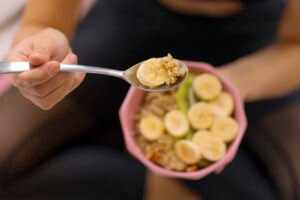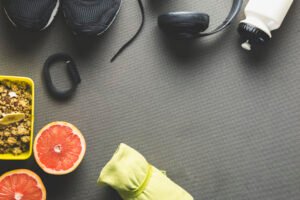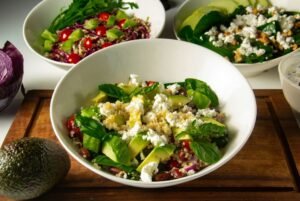As soon as I specialized in sports nutrition (focused on endurance), I started creating content and getting more into this field. Since then, I’ve been to a few running clubs here in Barcelona, and I’ve met a lot of people who have started and still want to start running.
When people ask me what I work with and I tell them I’m a sports nutritionist, they ask me, “What should I eat as a beginner runner?” Like almost all nutrition-related answers, it depends!
In this post, I’ll show how I’d put together a beginner runner’s diet today.
What Kind of Beginner Are We Talking About?
A beginner runner can already start at a good pace and run more than 10 km easily. Others might start slower and manage 3 or 5k at most. In other words, there are different types of beginners.
Today, I’m going to tell you how I would put together a beginner runner diet. I’ll focus on those who, at most, run 3 to 5k at a more leisurely pace.
Those who are just starting to run and at most do 3 to 5k (in less than an hour) per run twice a week, at a slower pace, use fat more as an energy source. This doesn’t mean you need to go on a low-carb diet, but you don’t need to overdo it on the carbs.
If you’re a long-time reader, you already know that calorie expenditure, the amount of macronutrients/micronutrients, hydration, timing, periodization, etc., are very individual parameters that must be calculated and planned for each person.
In addition, behavior, body composition, routine, and so on change from person to person and are crucial when putting together a diet.
Recommendations
The carbohydrate recommendation for light-intensity exercise is 3-5g/kg of body weight/day. And since the race lasts less than 60 minutes, there’s no need to refuel during exercise.
Regarding protein, we can calculate 1.4g/kg body weight/day. And fat would be ~20-30% (< 10% saturated fat).
A light runner’s meal should consist of :
• 1/4 carbs
• 1/4 protein
• 1/2 vitamins and minerals (vegetables, leaves, and fruit).
Sample Diet
Breakfast
- Option 1: whole wheat toast with smashed avocado + scrambled egg + a piece of fruit
- Option 2: Low-fat Greek Yogurt + a drizzle of honey + banana + mix of seeds
Lunch
- Option 1: Spaghetti + chicken bolognese + parmesan cheese + side salad + pear
- Option 2: Quinoa + grilled chicken breast + avocado + stir-fry vegetables
Afternoon Snack
- Option 1: peanut butter with banana on whole wheat toast
- Option 2: rice cakes with cream cheese or cottage cheese and fruit jam
Dinner
- Option 1: Couscous + lentils + boiled eggs + stir-fry vegetables + strawberries
- Option 2: Brown rice + edamame + grilled/baked white fish + baked vegetables + kiwi
The recommendations for hydration are: the average daily water for men is about 15.5 cups (3.7 liters), and for women, about 11.5 cups (2.7 liters).
For those who run early in the morning, you can eat something 30 minutes before running and then have breakfast.
For those who run at lunchtime, you can fit in a morning snack.
It all depends on your routine and training schedule.
This example is very helpful for those who are lost and want to eat well to improve their performance. But when we make an individualized plan, the results are always better and guaranteed.
In my 1:1 consultation, my clients learn about healthy sports nutrition, receive a personalized plan aligned with their goals, lifestyle, and training demands, and we always keep in touch to make any necessary adjustments.








